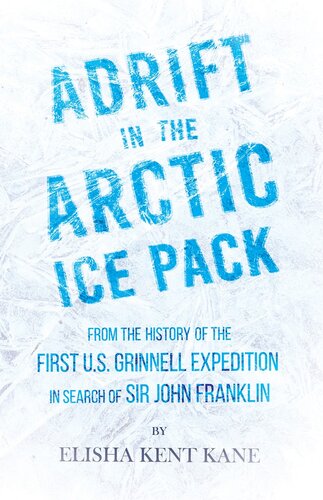

Most ebook files are in PDF format, so you can easily read them using various software such as Foxit Reader or directly on the Google Chrome browser.
Some ebook files are released by publishers in other formats such as .awz, .mobi, .epub, .fb2, etc. You may need to install specific software to read these formats on mobile/PC, such as Calibre.
Please read the tutorial at this link: https://ebookbell.com/faq
We offer FREE conversion to the popular formats you request; however, this may take some time. Therefore, right after payment, please email us, and we will try to provide the service as quickly as possible.
For some exceptional file formats or broken links (if any), please refrain from opening any disputes. Instead, email us first, and we will try to assist within a maximum of 6 hours.
EbookBell Team

4.7
56 reviewsIT was in the summer of 1845 that Sir John Franklin undertook his fourth voyage into the Arctic regions, in search of a northwest passage, and disappeared forever in that icy waste.
Franklin’s two ships, the Erebus and the Terror, were supposed to be provisioned for three years. When this interval had passed without word of the daring navigator there was grave fear that he had met with disaster. Then began an unparalleled series of search and relief expeditions, public and private, English and American: five separate ones in 1848, three in 1849, ten in 1850, two in 1851, nine in 1852, five in 1853, two in 1854, one in 1855, and one in 1857.
Among the earliest of these was one from the United States, known as the first Grinnell expedition, which left New York in May, 1848. Lady Franklin had appealed to the President of the United States to enlist his countrymen as a “kindred people, to join heart and hand in the enterprise of snatching the lost navigators from a dreary grave.” Accordingly a bill was introduced in Congress to fit out an expedition for this purpose; but the process of legislation was too slow to provide vessels and equipment in the short time that was left for such a venture.
At this juncture a New York merchant, Henry Grinnell, outfitted two of his own vessels for the service and proffered them gratuitously to our government. They were at once accepted under a joint resolution of Congress, and the President was authorized to detail officers and men from the navy to man the ships.